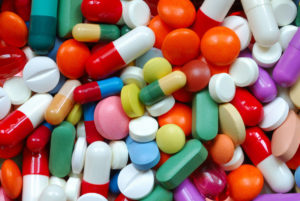By Kim Matone
 Summer is quickly approaching. This is the time of year when experimental drinking and drug use happens because kids are home alone. As parents, we hope our children are safe. We hope we have taught them how to make good decisions. We hope they won’t have access to drugs from any of summer parties, drug dealers or their friends. But what most parents don’t realize is that quite often parents are the drug dealers.
Summer is quickly approaching. This is the time of year when experimental drinking and drug use happens because kids are home alone. As parents, we hope our children are safe. We hope we have taught them how to make good decisions. We hope they won’t have access to drugs from any of summer parties, drug dealers or their friends. But what most parents don’t realize is that quite often parents are the drug dealers.
According to the 2015 Youth Drug Survey of Charlotte Mecklenburg Schools, 2.1% of sixth graders obtained pain killers from their own home with parental permission. That’s right! With parental permission! 3% of tenth graders took pain killers from a family member, yet only 0.5% were given prescription drugs by a stranger. Parents are giving their children prescriptions that are their own or another family member’s prescription thinking this will do no harm. It does a lot of harm.
- Taking someone else’s prescription medication even for the purposes it is intended for is considered abuse. A doctor may prescribe a different medication for one person for the same problem due to weight and height, allergies, or age. Parents cannot assume what is good for them is good for their child.
- Taking a prescription drug not for intended purposes can cause a person to get “high” and even addicted. A parent may be allowing his child to get high without knowing it.
- Giving your child a prescription drug that is not prescribed to them normalizes this behavior.
“If Mom and Dad let me take this for a headache, why can’t I take it now?”
It can be difficult to think that “medicine” given to us by our doctors could be dangerous, addictive, or even deadly. According to Psychology Today, “prescription drug abuse and addiction kill far more people in the U.S. than all illegal drugs combined.” Parents have the responsibility to keep prescription drugs away from their children and teenagers. They have the responsibility to keep drugs away from other children as well. Here are a few tips to prevent prescription drug use or abuse:
- Educate your child about the dangers of taking prescription drugs without a current prescription.
- Model taking prescription drugs appropriately.
- Have open communication with your child.
- Help your child make good decisions. Teach your child refusal skills and role play scenarios with them. Kids should know that their friends are more likely to push drugs on them than a drug dealer in a dark alley.
- Lock up all prescription drugs in the house. Don’t be a drug dealer! You may want to lock up all drugs to be extremely careful. You can buy a medicine lock box or simply buy a tool box with a lock.
- Take inventory. Know what medications you have in your medicine box or cabinet and how much of them are there. Your own children are not the only ones who may be interested in taking your prescription drugs; your friends, employees, or your children’s friends.
- Dispose of your meds properly. Do not have expired medications. Go to gov/Drugs/to find out how to dispose of them correctly. The best way to dispose of them is to let professionals take care of the disposal process. Carolinas Healthcare Systems offers Operation Medicine Drop several times a year.
Prescription drugs have become a problem in Charlotte-Mecklenburg as well as the U.S. Since 2010, Charlotte has had an increase of sixth graders’ lifetime usage. The bad news is that these drugs are in our very own houses. The good news is that parents are in control of their own home. Parents can put a stop to children getting their drugs at home. Parents can put a stop to experimentation in their very own homes during the summer. Parents can stop being the most successful drug dealers in town! They must.
Kim Matone is Owner of Thriveworks Counseling and Coaching in Charlotte. She has been a Certified Prevention Consultant for the past 15 years. She has facilitated programs on Substance Abuse Prevention, Self-Esteem, Bullying, and Safe Dating. Please visit Thriveworks.com/Charlotte-Counseling for more information regarding individual counseling and group counseling.
Sources: 2015 Youth Drug Survey: Charlotte Mecklenburg Schools 2015; https://www.psychologytoday.com/blog/wicked-deeds/201404/prescription-drugs-are-more-deadly-street-drugs; www.fda.gov/Drugs/
